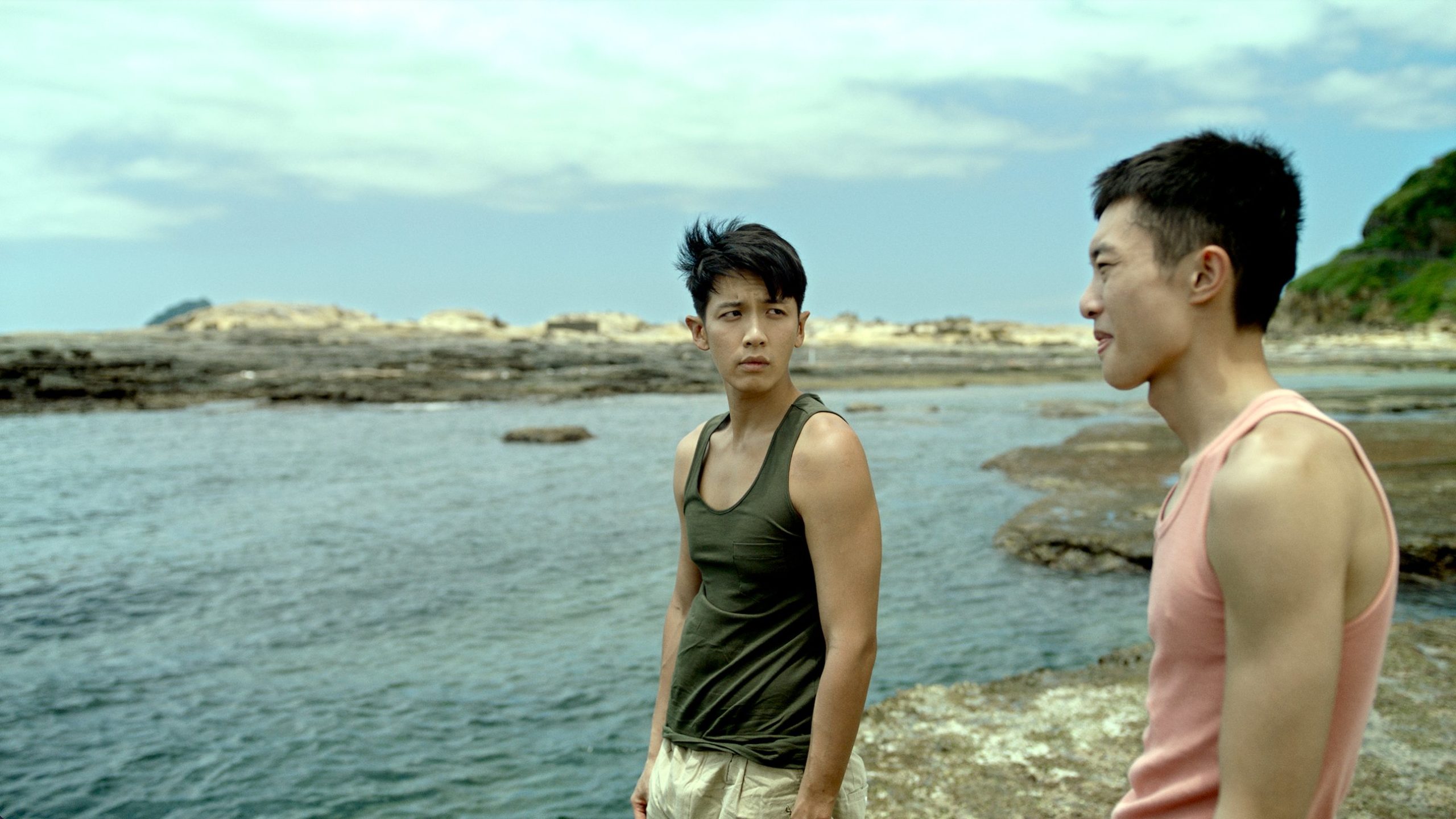‘Moneyboys’: A provocative, atmospheric film about Chinese hustlers
A Taiwanese and Viennese coproduction, "Moneyboys" follows Fei, a gay sex worker, as he explores love amid his life of secrecy.

C.B. Yi’s debut feature, Moneyboys (金錢男孩 jīnqián nánhái), is a beguiling and disturbing exploration of a Chinese community hiding in plain sight. It follows the protagonist, Fei, through the arcs of two loves, both of which have a lasting impact in dramatically different ways.
Fei (Ko Chia-kai 柯家凱) is a charming and popular hustler who starts off in the smaller leagues in the town of Yiwu. After being severely roughed up by a client, Fei’s protective lover, Xiaolai (JC Lin 林哲熹), comes to his defense and ends up fighting for his life. Once word spreads of the lover’s heroic defeat, Fei flees his home and his love — fearing his secret life will be revealed — before the law gets involved (prostitution is illegal in China).
We meet Fei five years later, where he now lives a far more luxurious life, still as a hustler, in the bustling mega-metropolis of Shenzhen. His home has an icy elegance reminiscent of the decor of the big house in Parasite, with items better off looked at than touched (perhaps like Fei himself). News of an ailing grandfather coupled with a traumatizing brush with the cops leaves Fei shaken, and he makes the journey back to his native fishing village. On the way, he runs into Long (Bai Yu Fan 白宇帆), who from the get-go cannot hide his long-harbored crush on Fei. Long is handsome, gawky, bright and goofy like a teenager, his demeanor the complete foil to Fei’s gentle and measured poise. When Long asks how long Fei’s staying, he responds with a noncommittal “Depends.” It’s unclear what he wants, though. What does anyone want from a homecoming? Closure? Safety? Warmth?
Unfortunately, Fei receives little of these comforts. It’s made clear that his family (and the other villagers) are repulsed by his lifestyle, though they happily take his money. A group dinner that starts off amicably erupts into an emotional brawl. Fei returns to Shenzhen, with Long following closely behind like a hungry puppy on his own tormented journey to become a moneyboy.
C.B. Yi was Michael Haneke’s student at the renowned Vienna Film Academy, and it shows through the diligent and carefully composed camerawork. Haneke often explores cold people, those who fit into society but protect a damning secret, which leaves them overly restrained until a fit of violence. Haneke’s camerawork is similar: employed at a distance to carefully watch but never intruding on action, letting anticipation and tension simmer but rarely resolve. The same goes for Moneyboys’s cinematography, which is stylish, glossy, sleek, and always kept at a distance. It gives the film an eerie sensual detachment with frames reminiscent of Rüben Ostlünd’s work, switching out Scandinavian design for Taiwan’s verdant landscape.
Detachment is a word that comes up often in Haneke’s work, as it has with Yi’s, and it’s one of the most simultaneously successful and puzzling elements of the film. At the beginning, the languorous pace, the often-still camera that lingers and observes, creates a rich and textured atmosphere; you are immediately brought into this tenuous world between danger and glamor. However, by the end, the visual conceit dampens the pace that the narrative yearns to move at. We linger on silences when we’re in desperate need of story, and longing glances are prioritized over climactic action.
Fei’s disposition also proves perplexing. He is consistently beloved, but never truly known (maybe he is by Long because of a shared childhood, but that is only presumed). He is doted on and desired, though I never could fully grasp the impetus behind the ardor. It is, as we learn later in the film, not enough to just be beautiful to dominate someone’s psyche. When I finally settled on Fei’s magnetism as simply mysterious (and chalked it up to his being incredibly handsome), I ached for more of Long’s interior world to unfold, something Bai Yufan’s captivating and unfettered performance could have handled with zeal and nuance.
Despite these hangups, I believe the film to be a success as a debut and an exciting start to a filmography that I hope continues to showcase intriguing and beautiful portraits of contemporary Chinese culture. Though set in mainland China, filming took place in Taiwan and involved a Taiwanese and European co-production (Yi himself was born in China and raised in Austria, and uses a pseudonym to keep his work and private life separate, as he still has family he visits in China). Some say this muddled the cultural authenticity of the film, with reviews noting that the actors are clearly not speaking with accurate regional intonations. Others were perturbed by the “Westernized” cinematography. These seem like trivial battles to pick; after all, when do we watch a European film where everyone has the same accent? How many people have Wong Kar Wai stills on their mood board right now? I believe it a triumph for an artist to make a Chinese film on their own terms, without fear of censorship or bureaucratic interventions, allowing a beautiful vision to prevail.
Moneyboys is now streaming on MUBI and available on Amazon Prime.






